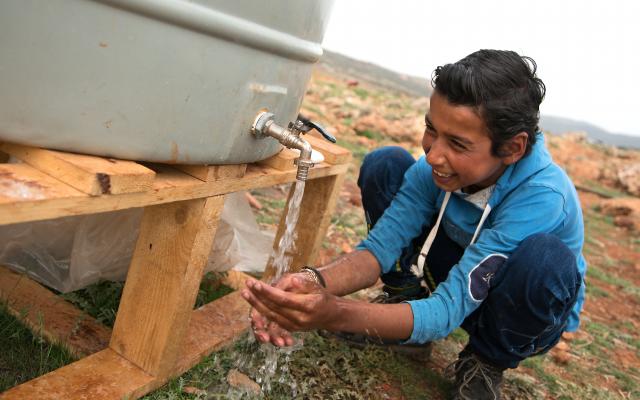
Our vision is a Lebanon where marginalized women and men (Lebanese, Palestinian and Syrian populations, including refugees) are protected and empowered to enjoy their basic rights and access services enabling them to live in dignity within a more equitable society.

For the last 4 years, Lebanon has been going through one of the worst economic crises in recent history. Inflation has remained at three-digit rates and wealth inequality has reached unprecedented levels. High unemployment rates, security issues and diminishing access to necessary public services disproportionately impact the country’s poorest groups.
As of 2023, over 80% of Lebanon’s population is below the poverty line, with the situation being more precarious for the country’s 1.5 million Syrian refugees, 90% of whom are unable to afford basic needs.
A political deadlock and a lack of consensus between the country’s ruling political parties, coupled with an increasingly inciteful and violent discourse against marginalized groups and rising safety and security threats, has placed Lebanon in the midst of a multifaceted and extendedly protracted systemic shock.
The refugee crisis in Lebanon
Lebanon continues to host the largest number of refugees per capita in the world, amounting to 1 out of every 4 individuals. The socioeconomic collapse of the last few years has made basic needs attainment even more difficult for both Syrian refugees and Lebanese host communities, and has exasperated social tensions.
An inciteful discourse propagated by mainstream media and political actors has led to the development of a hostile environment vis-à-vis the country’s marginalized groups, especially refugees. This has made already-limited services less accessible and has facilitated the proliferation of instances of physical violence, including but not limited to tent burnings, mass expulsion from communal areas and public beatings.

A resident of Btedai ITS (Informal tented settlement) washes his hands with water from an Oxfam provided water tank. Photo: Adrian Hartrick/Oxfam
Oxfam in Lebanon
Oxfam has been working in Lebanon since 1993. We provide humanitarian assistance to vulnerable people affected by conflict and operate in the sectors of inclusive economic development, good governance and gender justice at a local and national levels.
Oxfam in Lebanon adopts a highly contextual approach throughout its endeavors, working through local partners to achieve its strategic objectives and focusing on empowering the voices of marginalized women, men and people with diverse SOCIESC, including refugee, migrant and host communities. This allows us to better prepare local communities and scale up our humanitarian interventions in the face of a new emergency, or the expansion of a crisis.
Our humanitarian, economic justice and governance programmes function as umbrellas for our various sectoral interventions, which include protection and resilience, renewable energy, Water, Sanitation and Hygiene (WASH), social entrepreneurship, decent employment, Sexual and Reproductive Health and Rights (SRHR), women’s political participation, civic engagement and social cohesion, among many others.
More recently, Oxfam in Lebanon’s five-year strategy (2023-2028) has prioritized the use of innovative and accessible financial solutions for social enterprises, renewable energy in humanitarian and long-term interventions and greater investment in business continuity. As part of efforts to adapt to deteriorating economic conditions, Oxfam in Lebanon ramped up its Cash Plus programming, coupling its cash assistance endeavours with complementary social protection modalities to support local communities in Lebanon.